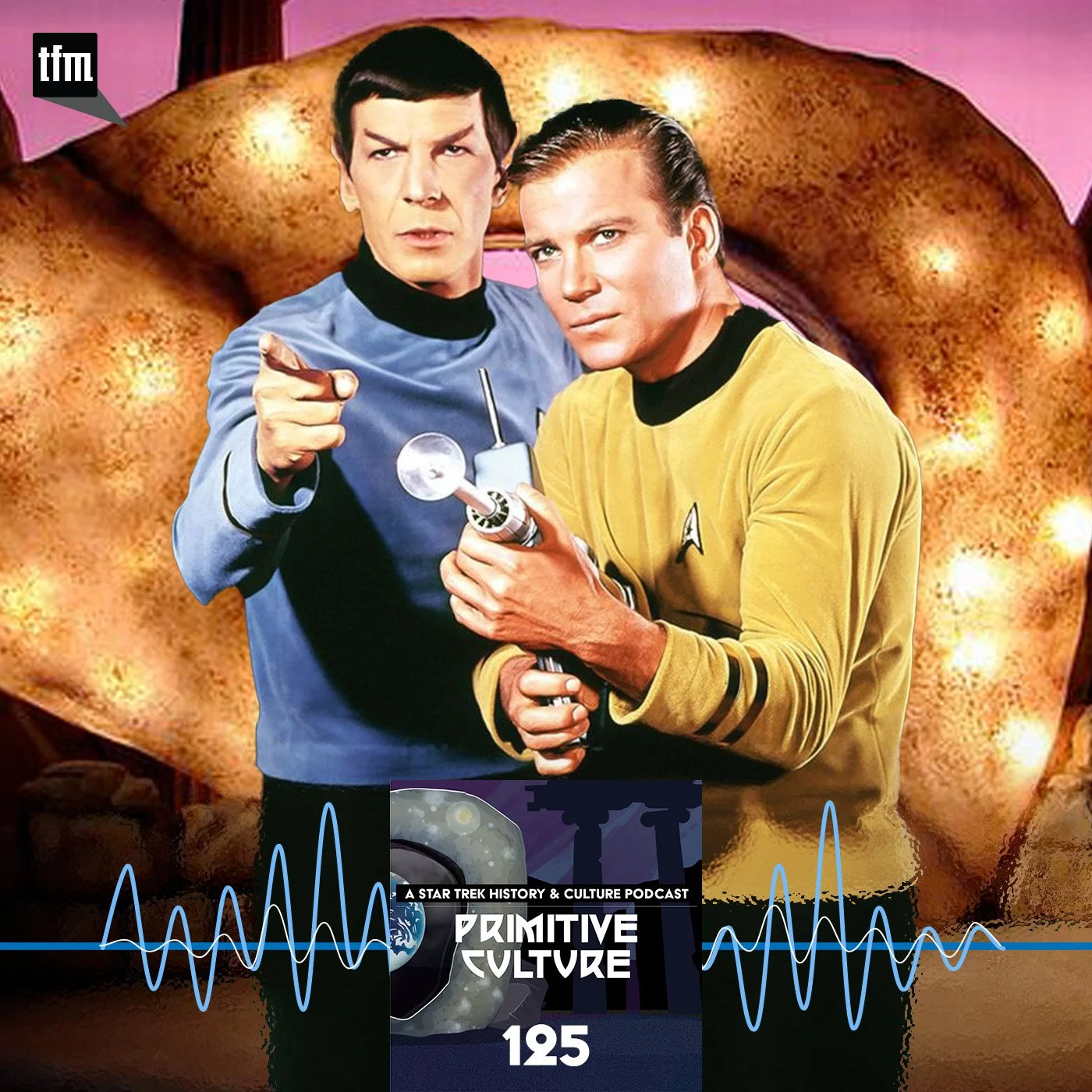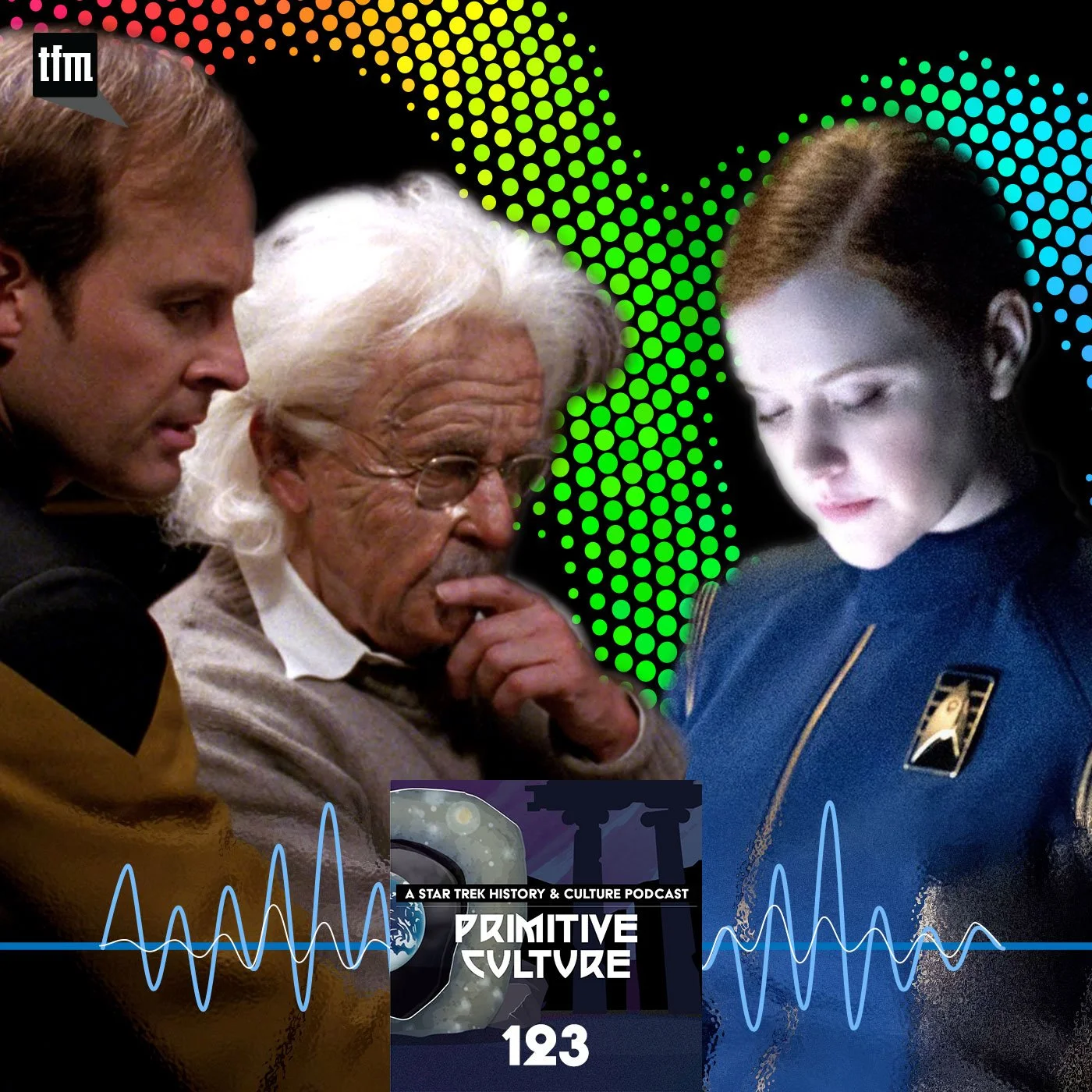Suicide in Star Trek.
Running Time: 2 hours 15 minutes 25 seconds
Download / RSS / Send us a message / Discuss the show / Support Trek.fm
For Starfleet officers, saving lives is perhaps the most important part of the job, even more so than exploring the galaxy and making contact with new civilizations. So when a character such as Quinn, the Q in the Star Trek: Voyager episode “Death Wish,” chooses to end their own life, it invariably comes as a shock—just as, in our own lives, the death of a loved one by suicide can be a particularly disturbing loss.
In this episode of Primitive Culture, host Duncan Barrett is joined by Clara Cook for a look at Star Trek’s depictions of suicide and parasuicidal behavior. We consider how the presentation of such desperate acts—and the impact on those left behind—has shifted in the half-century between The Original Series and Star Trek: Picard. We also dig into the tricky business of the “psychological autopsy,” trying to establish exactly why a person would choose to bring their own life to and end. Can 13—or 47—reasons why ever truly help us make sense of suicide? And what can those of us left behind learn about ourselves from those who’ve made such an irrevocable decision?
Chapters
Intro (00:00:00)
Psychological Autopsies (00:03:00)
On the Ledge (00:17:10)
Suicide Myths (00:24:05)
Reporting Restrictions (00:34:45)
Ritual Suicide (00:56:30)
Assisted Suicide (01:00:15)
Parasuicide (01:11:00)
Who You Leave Behind (01:24:10)
Going Down with the Ship (01:30:45)
Hotline Numbers (01:50:00)
Host
Duncan Barrett
Guest
Clara Cook
Production
Duncan Barrett (Editor and Producer) C Bryan Jones (Executive Producer) Matthew Rushing (Executive Producer) Tony Black (Associate Producer) Norman C. Lao (Associate Producer)











